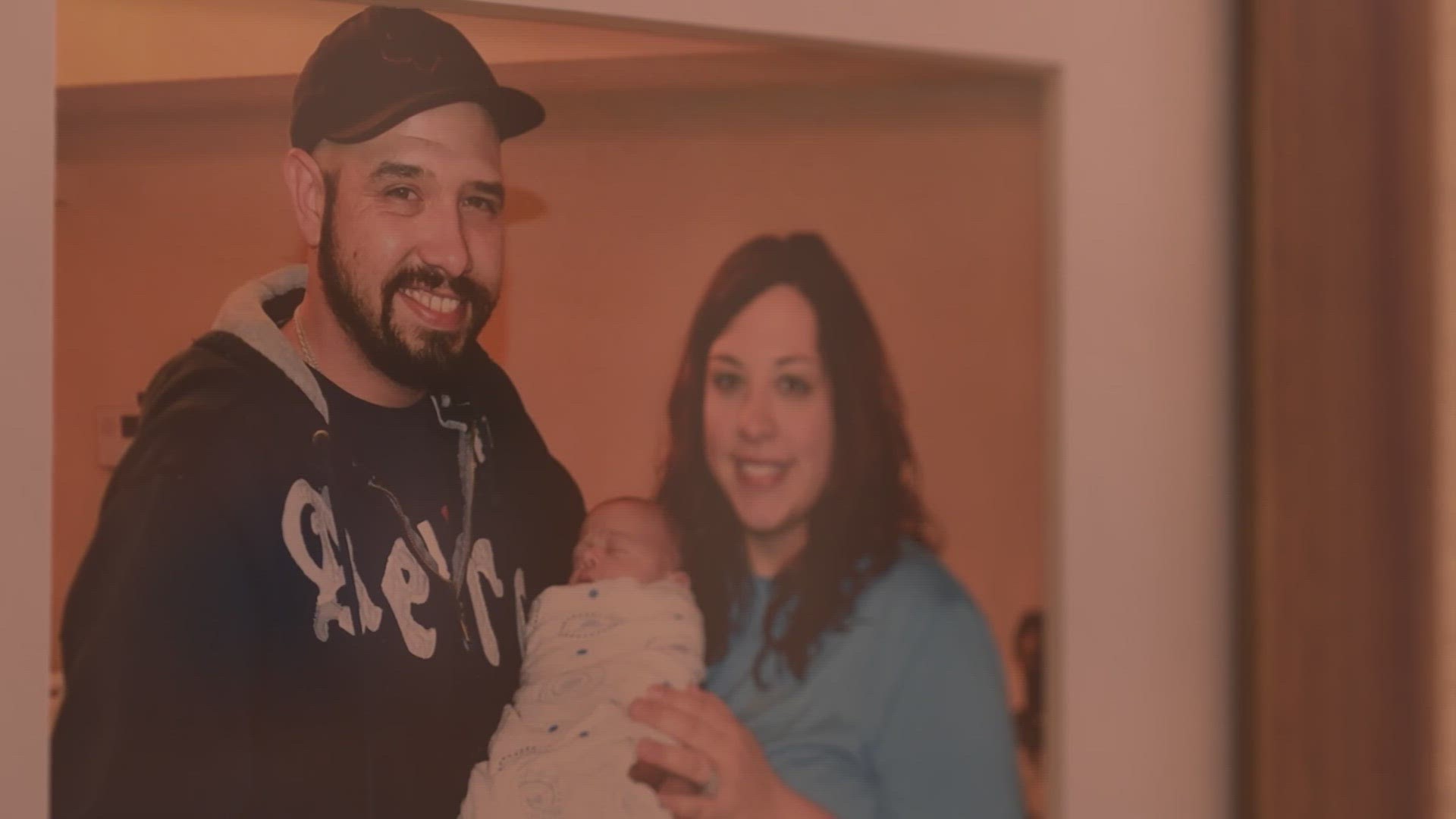DALLAS — Erika Rose wears a necklace, an angel wing pendant made with her brother's ashes and engraved with the words "I loved and was deeply loved." It brings her comfort.
She is still searching, however, for a sense of fairness that a drunk driving sentence did not bring her three years after her brother's death.
"I don't think it's fair," she said. "I don't think my brother got the justice that he deserves."
Danny Ortiz was two months shy of his 30th birthday when he neared the intersection of Duncanville Road and Ranchero Lane. The single father of three was on his motorcycle. A pickup truck, driven by Bryan Lee Howard, 60 at the time of the incident, pulled through the Ranchero Lane stop sign and into Ortiz' path.
"He said that when he was on Ranchero Lane, he saw my brother. He sped up thinking that he could miss Danny," Erika Rose said of Howard's testimony in a Dallas County courtroom last month. "He said I thought if I sped up I would miss him."
Ortiz ran into the side of the pickup truck. Despite wearing a helmet, he was killed on impact. Court records show that the accident would be Howard's third DWI.
The accident happened in May of 2020. After multiple delays, including the COVID shutdown of cases at the Frank Crowley Courts Building in Dallas, the case finally went to court in August 2023. Although sentences for a conviction of intoxication manslaughter range from two to 20 years in prison, in a non-jury trial Judge Tina Clinton sentenced Bryan Lee Howard to six months in a prison alcohol treatment program.
Aug. 21, 2023, Howard was ordered held in the Dallas County jail until an opening in the program could be found. Earlier this month, he was transferred to the TDCJ Johnston Unit in Winnsboro, Texas to begin the in-custody treatment program.
"I told him that I thought the sentence was a joke," Erika Rose said of her victim impact statement she was allowed to give in court on the day of the sentence. "That I thought the judge gave him a slap on the wrist for killing my brother."


"Bryan and I are painfully aware of their pain and what they've been through," said Howard's defense attorney Robert Smith who argued, along with Howard's family and friends, that he was truly remorseful and had stayed clean and sober during the wait for the case to go to court.
Smith also said that the sentence includes six months to a year in a sober living/halfway house and frequent monitoring after Howard is released.
"To the extent any message gets out from this case, they should also see how he has demonstrated and how he has addressed it in a responsible, sorrowful way," said Smith.
"For his part in it, he could not be more sorry," Smith continued. "He never tried to make excuses and I don't try to to make excuses for him. With tragedies and with mistakes comes the possibility of redemption and forgiveness."
Erika Rose said her brother was a forgiving soul.
"But I was like he is not here because you killed him," she said of the victim impact statement she delivered in court last month. "You get me and you get anger and frustration. I also told him that I hope that my brother's face haunts him and that he thinks of him any time that he even fathoms the idea of drinking and driving."
Forgiveness also difficult as she helps raise her brother's three children and has to answer their questions about what happened to their father and the man involved in his death.
"He did understand that what he did pretty much broke my family," she said. "I hope this sheds light to the prosecutors, to the court, to the judge, to realize hey, your sentence really wasn't fair."
Fairness she hoped would come with a sentence of at least ten years.
The TDCJ six-month In-Prison Driving While Intoxicated (DWI) Recovery Program focuses on "alcohol-related problems, relapse prevention, and pro-social problem-solving techniques, to include group and individual therapy. "

